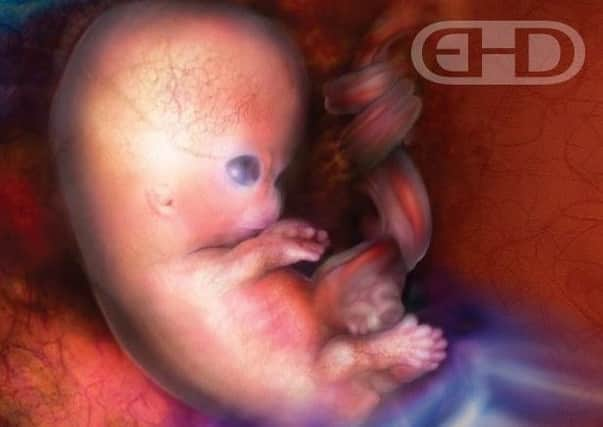Pro-abortion arguments are increasingly at odds with the cutting-edge of scientific research


In a society which professes adherence to democratic norms the ability to demonstrate popular support for a given policy is powerfully persuasive.
However, we should not automatically confuse majority opinion with objective truth or justice.
Advertisement
Hide AdAdvertisement
Hide AdRather, world history is littered with examples of the majority opinion, either that of a nation or of an ethnic group, leading to war, persecution, and genocide.
Indeed, our culture (rightly) celebrates those individuals who have argued a minority position, often in the face of persecution, and who were subsequently proven right by the course of history.
The willingness to declare ‘here I stand, I can do no other’, or to ‘speak truth to power’ is highly valued in our civilisation.
Indeed, the democratic principle of free speech underscores this fact: it implicitly recognises that the individual may possess a grasp of the truth not yet understood by the mass.
Advertisement
Hide AdAdvertisement
Hide AdThis, I think, is the position in which pro-life people currently find themselves.
Earlier this month two polls, commissioned by Amnesty International, suggest majority support for the liberalisation of Northern Ireland’s abortion laws.
It would be a mistake for the pro-life lobby to dismiss these reports as ‘lies, damn lies, and statistics’.
We must remember, after all, that the DUP remains the only significant party with an unambiguous pro-life stance.
However, there is some cause for optimism.
Advertisement
Hide AdAdvertisement
Hide AdFirstly, science is catching up with the debate. New imaging techniques are producing increasingly sophisticated models of the developing human embryo. Indeed, a study published in the journal Cell last year suggests that a greater level of development of the peripheral nervous system occurs much earlier than hitherto thought.
What this means is that is that unborn children may experience pain as early as the first trimester of pregnancy, when the majority of abortions (79% in the UK) take place.
These findings have implications for the UK government under the 1961 Single Convention on Narcotic Drugs, which obligate them to ensure that people have access to pain treatment to protect against ‘cruel, inhuman, and degrading treatment’.
Consequently, as our understanding of the early stages of the human life-cycle improves, the characterisation of the unborn as a meaningless ‘bunch of cells’ becomes increasingly untenable, and the argument for conferring human rights to the unborn strengthens.
Advertisement
Hide AdAdvertisement
Hide AdSecondly, the concept of ‘choice’ is itself becoming problematic for those who favour abortion, specifically what constitutes a ‘legitimate’ grounds for choice.
Explicitly, Labour has recently called for a ban on the use of Non-Invasive Prenatal Tests (NIPTs), which allows expectant parents to learn the gender of their baby, and which is also leading to the abortion of unwanted girls.
Pro-‘choice’ activists should be called out on this contradictory position.
If a woman’s ‘right to choose’ is a primary reason for the provision of publically-funded abortions, why is her choice to be invalidated if it is made based on the sex of her baby? Might there be other invalidating reasons?
If so, what are they?
Advertisement
Hide AdAdvertisement
Hide AdIn consequence of the above (amongst many others), we find that pro-abortion arguments are increasingly ideological, increasingly contradictory, and increasingly at odds with the cutting-edge of scientific research.
The argument is being won, but we must get better at playing the numbers game.
Philip Lynn, Gracehill, Ballymena